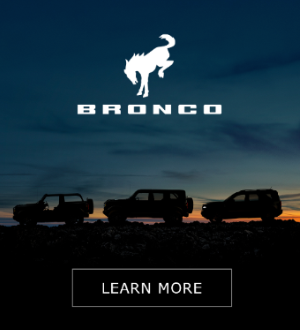By Barbara & Bill Schaffer
Since the GMC Terrain went on sale in 2010, more than 700,000 of the first-generation models have been sold. It has also been ranked as one of the top models in the compact segment by buff magazines. This year the Terrain received a complete makeover from styling to drivetrains, so we wanted to check it out.
As the smallest of the GMC eight vehicle lineup, the 2018 GMC Terrain received a ground up redesign moving away from the company?s boxy SUV design. The new Terrain?s lines are more pronounced, with added sculptural elements that maintain the strong GMC family character but with a new contemporary flair. We?re told this fresh look signals the next chapter is GMC?s design language.
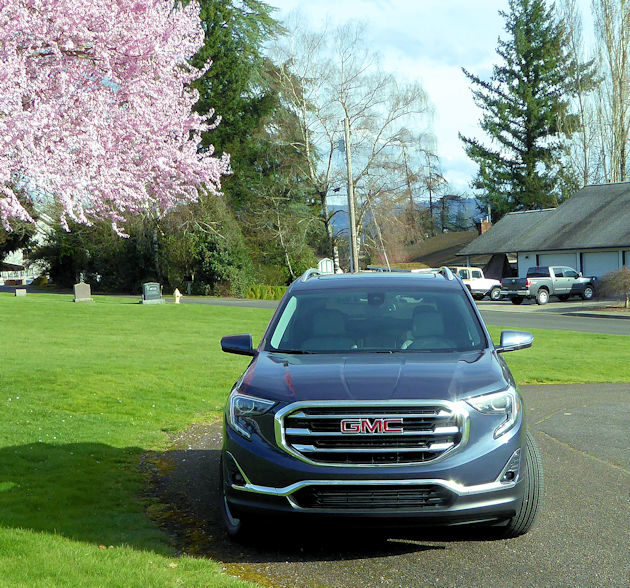
Significant changes have been made to the drivetrain lineup for 2018 with the four-cylinder and V-6 engines being replaced by three turbocharged four-cylinder engines. The standard engine for the Terrain is a 170-hp, 1.5-liter DOHC four-cylinder with direct injection while the standard Denali engine is a 252-hp, 2.0-liter. (The 2.0-liter engine is also an option on the SLE & SLT models.) Both engines use GM new nine-speed Hydra-Matic transmission. There is also an optional (on the SLE and SLT models) 137-hp, 1.6-liter turbo diesel engine available with a six-speed automatic, but it?s not available on the Denali.
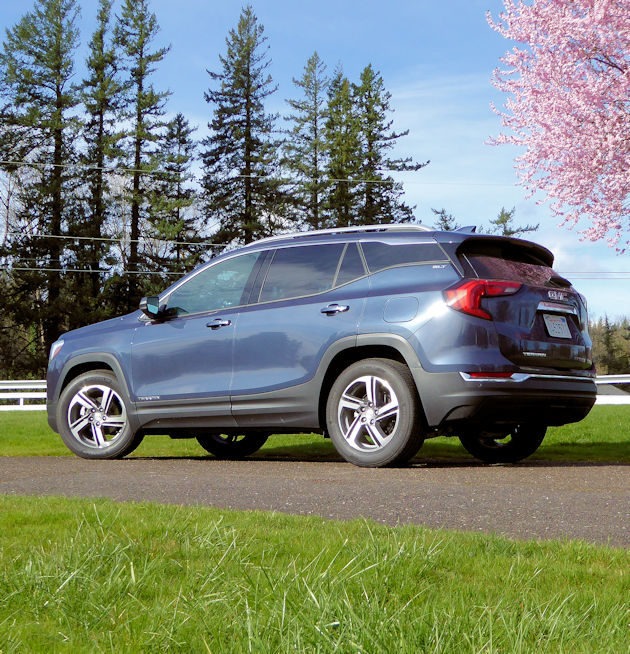
All three engines have standard front-wheel drive configuration or the optional all-wheel drive. The AWD Denali has an EPA rating of 21 mpg city and 26 mpg highway for the AWD Denali with the 2.0-liter engine. We averaged 22.8 mpg in our AWD Denali test vehicle. The FWD Diesel has an EPA fuel economy rating of 28 mpg city and 39 mpg highway — we averaged 34.4 mpg. The 1.5-liter gasoline and 1.6-liter diesel engines have a 1,500-pound towing capacity, while the 2.0-liter engine is rated at 3,500 pounds so it you plan on pulling a small trailer, you?ll want the 2.0-liter engine.
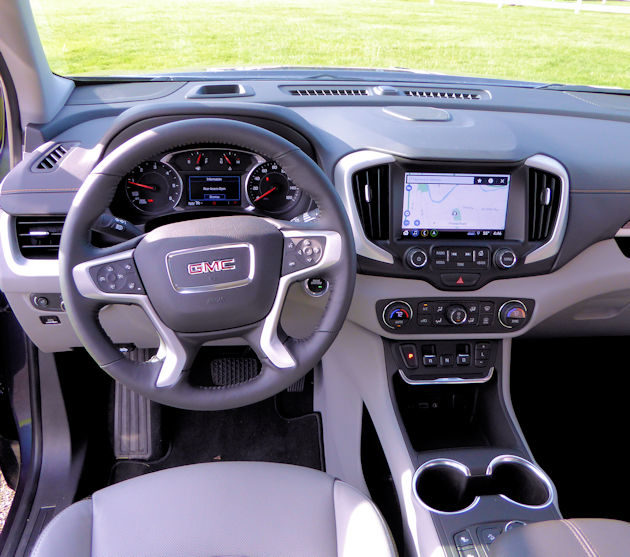
Denali models are more luxurious and sophisticated than the basic models. They have a massive list of standard features from upgraded interior appointments to special suspension tuning to the latest safety technologies of driver alerts like blind spot warning, lane change alerts, rear parking alerts and most others. However, we were disappointed to see that the GMC doesn?t offer an active cruise control system. They do have a Following Distance Indicator, but it only warns of an impending crash, it doesn?t brake.
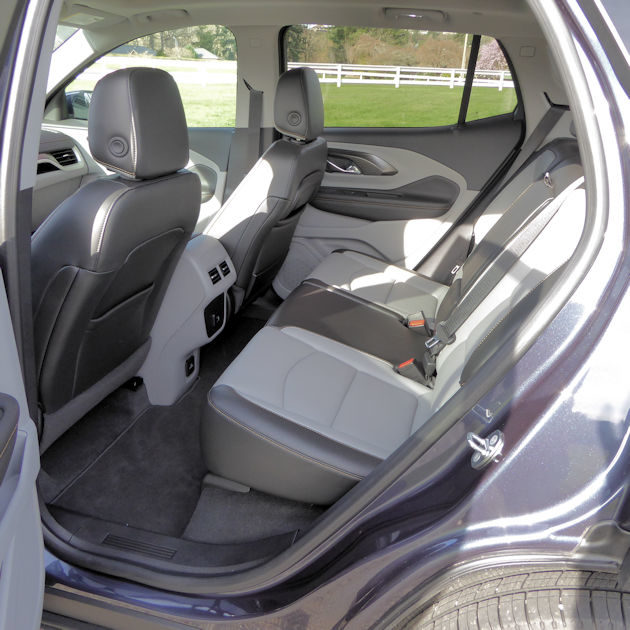
We drove both the Denali and the SLT Diesel versions and while the Denali is more opulent the upper level SLT is very well equipped. Both models have all the latest communications connections including Bluetooth, Apple Car Play and Android Auto in addition to GM?s outstanding OnStar system. The systems are intuitive and user friendly.
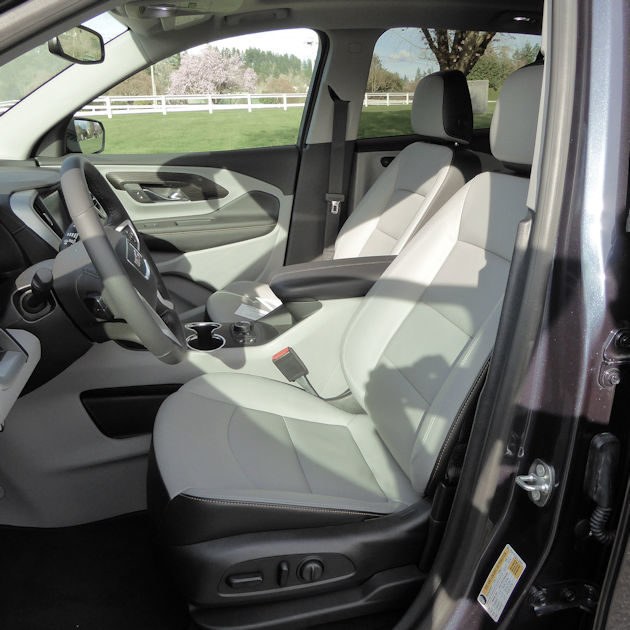
Like many manufacturers, GMC has gone out of the box on some of the controls, namely the gear shifter, which is now a row of buttons along the bottom of the center stack. Like anything unfamiliar the controls had a bit of a learning curve, but it does help unclutter the console. Plus, we are both drivers who enjoy shifting automatic transmissions, but the process was a little awkward on the GMC with the control button to the far right of the transmission buttons instead of somewhere more traditional like the steering wheel. We did like the all-wheel drive control which is mounted on the center console just in front of the arm rest. It allows the driver to easily switch between drive modes, turn the lane departure on and off, and switch on the hill decent control without taking eyes off the road.
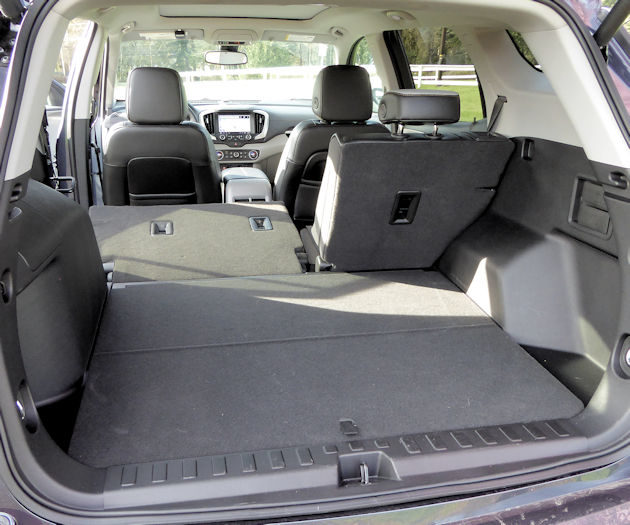
The 2018GMC Terrain is enjoyable to drive and offers an elevated level of creature comforts along with a respectable level of performance and handling. The Denali accelerates from 0 to 60 mph in 6.8 seconds according to buff magazine tests and has a top track speed limited to 132 mph. It runs through corners with good dexterity, but not at the same level as the much more expensive German compact SUVs.
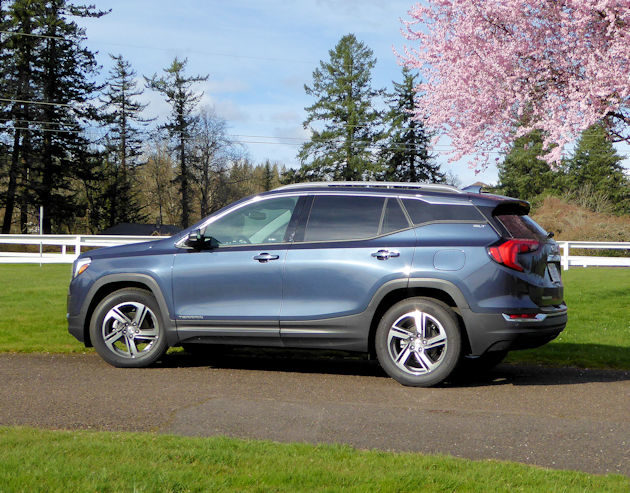
The Diesel is not as responsive as the gasoline engines. It makes the acceleration run in about 10 seconds but feels more responsive than the number indicates thanks to a torque level just slightly less than the 2.0-liter gas engine. The engine is also quiet at highways speeds, but we noticed some diesel chatter when stepping out to get the mail, but we did not smell the diesel exhaust at all. The big diesel benefit is the 50 percent better fuel economy, and we feel this would be a top pick for a commuter.
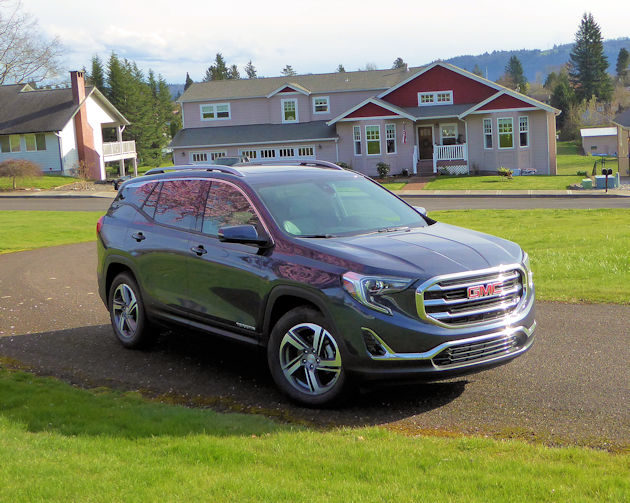
The GMC Terrain is available in six trim levels: SL, SLE, SLT, SLE Diesel, SLT Diesel and Denali. Terrain pricing starts as low as $27,040 including the destination charge, and less cash allowance available at this writing, for the FWD SL. All-wheel drive adds $1,700 and the diesel is $2,900 extra on the SLT trim. The Denali has a base price of $38,595 and the price can go to more than $44,000 if someone marks all the options on the order form.
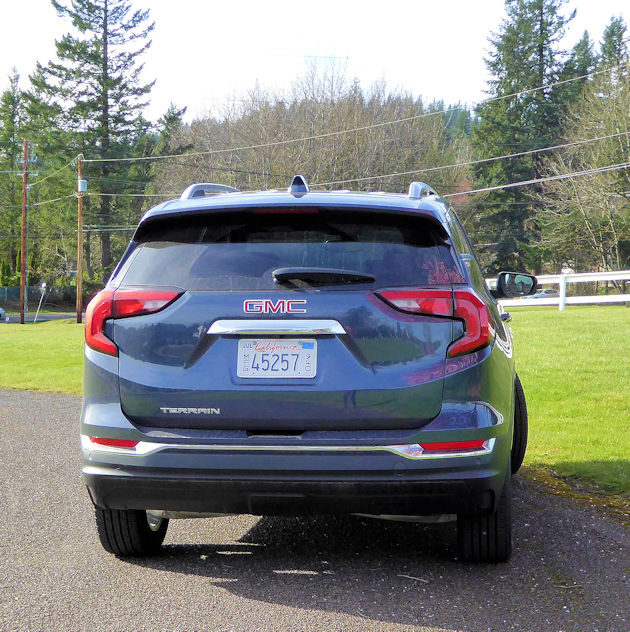
Someone shopping for a compact SUV like those offered by the Asian manufacturers should add the GMC to their ?must drive? list. It?s a strong competitor, has tons of features and it looks great both inside and out.







